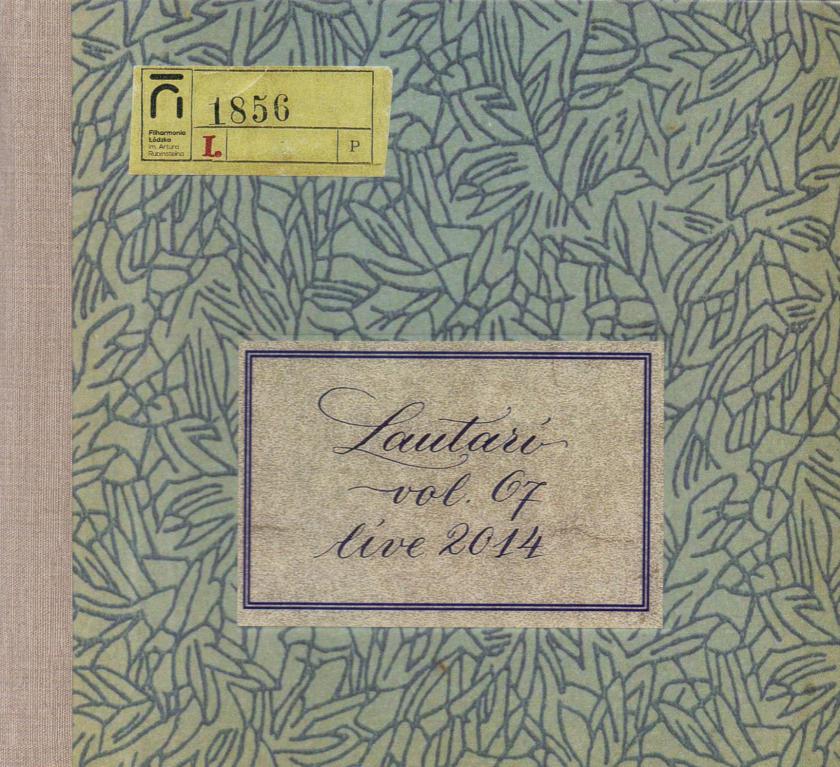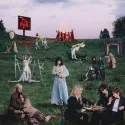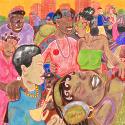Lautari Vol 67: Live 2014 features Michael Zak on clarinet, flute and shawn, with bassist Marcin Pospieszalski, fiddle player Maciej Filipczuk and the prepared piano and accordion of Jacek Halas.
That instrument list gives you an idea of the musical territory you’re travelling through. Just as Jabusz Prusinowski Kompania, of which Zak is a member, specialises in antique Polish styles, so Lautari set about blowing wind, striking keys and drawing bows across a musical landscape of angular and contemporary arrangements of deeply rural tunes and dances.
Sonically, they shape-shift from antique village dances that rise from the skeletal to the fully fleshed, to contemporary European art music quartet – call it jazz, call it folk, call it what you like – the supple double bass sewing the complex rhythms like so many self-germinating seeds, the fiddle by turns pleading, leading and atonally screeching like some uprooted mandrake, drawing the flesh back on the original folk melodies, uncovering new layers of shape and rhythm as they go.
There are two taproots of source material for the album. The Vol 67 in the title refers to 19th-century Polish folklorist and collector Oskar Kolberg’s vast collection The Folk: Its Customs, Life, Speech, Tales, Proverbs, Rituals, Superstitions, Games, Songs, Music & Dances. They also draw from Vol 23 – tunes from the Kalisz region of central Poland, and from the band’s own field recordings. Instead of going into a studio to record these new settings for ancient songs and dances, they chose to use a bigger room and a live setting – Lodz’s Philharmonic Hall – to debut and record this striking 60-minute set.
The CD comes with extensive notes and artwork, providing useful context for the music. For “Owijak Zapustny”, for instance, the source text reads: “On the Shrovetide, the maidens were plucking sprigs because they hadn’t got husbands last year”, and it’s illustrated by what looks like a prepubescent figure roughly carved from spruce, sporting an enormous erection rising up to the chest. The kind of folk art that makes the Chapman Brothers look tame.
At the heart of the set is "Blaszane Mordy", featuring 1950s field recordings of two Polish traditional singers laid over mournful, lyrical, slightly gritty music. Rising and falling around deep cuts like this comes a range of seasonal, ritual and magic-infused tunes – songs and sounds that were created to make things happen in real life, in the communal and inner life. The closing "Do Tego Tu Domu Wstepujeny" has the same thrilling, primitive riff as The Stooges' "I Wanna Be Your Dog" and The Fall's "Elves", and features a life-size rooster made of clay. Drawing on musical modernism as much as specific rural folk traditions, Lautari deliver a compelling contemporary account from one small corner of the European folk tradition's amazing legacy.















Add comment